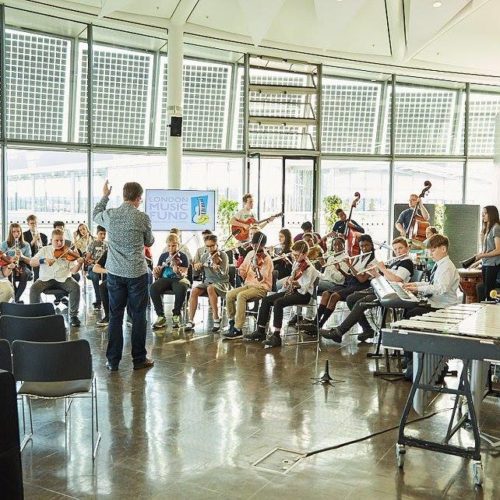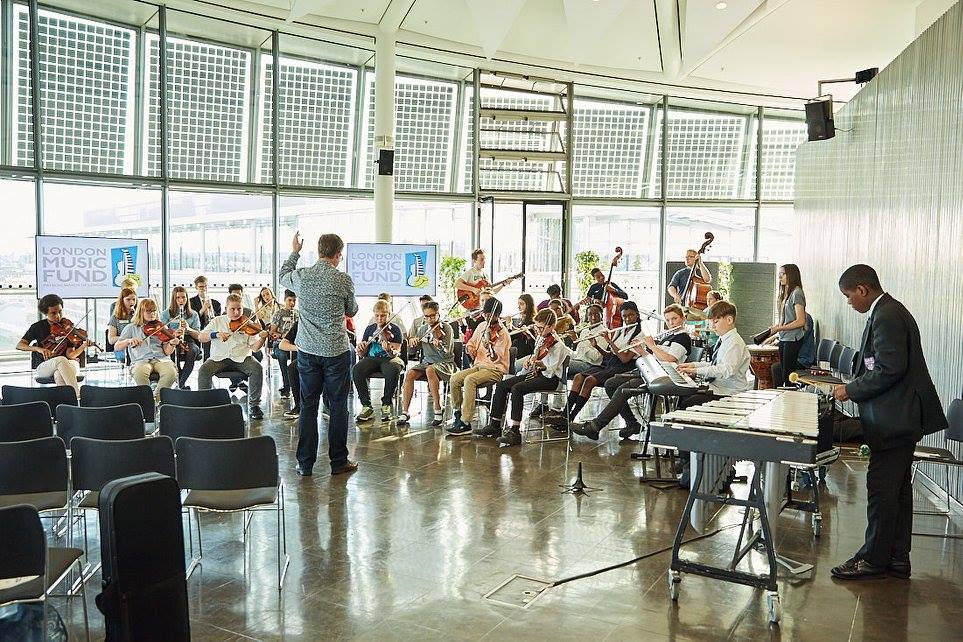Why teach music? Because it makes kids enjoy school
mainEarlier today, we published a report on some academic research suggesting that music lessons may not improve a child’s education.
Chrissy Kinsella, Chief Executive, London Music Fund, has come right back at us with some cogent home truths. Go, Chrissy:
The debate about whether learning music makes children ‘smarter’ is one that never seems to reach a conclusion. Numerous studies around the world argue that music does, in fact, improve cognitive function, strengthens neural pathways and contributes to educational attainment, though this Slipped Disc post suggests that new research from Dr Giovanni Sala found that it does not. This is an argument that will never be won, by either side. But we are focusing on the wrong outcome.
Searching for evidence that music supports educational attainment is not an argument for keeping music present in schools. The debate about the positive impact of music in the curriculum is stronger than ever. The DfE have recently suggested that schools remove ‘non-core subjects’ from the curriculum over the next 12 months to allow children to catch up on work that may have been missed during lockdown, a suggestion that was (thankfully) met with horror by education specialists up and down the country. In fact, the Tri Borough Music Hub have created a post-Covid ‘recovery curriculum’ for schools, based around music and singing, to help children get back into structured learning and support their wellbeing.
In arguing whether or not music makes children better at maths or english, we are doing the very essence of music education a huge disservice. Learning a musical instrument, singing, making music with others or alone, provides an enormous sense of joy, recreation and comfort. It allows us to be a part of something bigger than ourselves. It allows an escape from the difficulties of the day. There is enormous research on how much music helps emotional and mental well-being. We have seen first-hand during lockdown just how much the world has turned to the arts in order to get through the anxiety and stress of recent times.
At the London Music Fund, the Mayor of London’s music education charity, we have seen the enormous impact of how music has helped the children that we support since the lockdown began in March. We have heard from them about the fun and relaxation they have gained from being able to continue learning and practising their instrument, and the outlet it has provided. Online music making can not and will never be a replacement for making music with others in person, but at time when we can’t make music in groups, the connection and community that can be found online is enormously important. Children have told us how music has helped them to forget their difficulties during this time, allowing them to switch off from frightening and scary news, to relax from stressful days, or home-learning, to connect with something that reminds them of their friends and ‘normal’ times, to give them some semblance of familiarity and routine. Perhaps, most importantly, they tell us every day that it makes them happy.
Learning an instrument or singing, or even just listening to or experiencing music – live or recorded – allows us to connect with others, to make music and fulfil a fundamental human need to be creative. The additional benefits are wide-reaching and may well include cognitive function, academic attainment, etc, but the experience of learning and doing music for music’s sake – for the sheer joy of music – must never be underestimated.







Comments